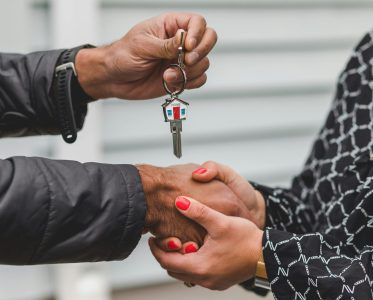The mortgage industry is like a minefield that could blow up on you suddenly, even when you’ve planned everything and done all your research, which is why you must tread carefully when attempting to secure a mortgage to buy a home or other real estate. You need to choose your lender with care and also take into account the interest rates, both fixed and floating, because you don’t want to find yourself battling with a debt that you cannot afford to pay back. This process is complicated, to say the least, when you’re looking for a suitable mortgage package in your own background, so when you have to do it overseas and in a relatively strange country, you can imagine how much more difficult your task becomes. The process is loaded with pitfalls that you must avoid, the most important of which are:
- Trusting mortgage providers without meeting them: Yes, some of the best deals are found on the Internet, but the downside of this great communication tool is that people are anonymous. This raises the question of how much you can trust them to finance your mortgage, especially because the sum is large. So don’t jump at the cheapest offer you get without doing your research about the lender or the broker you are dealing with. In general, your safest bet would be to conduct the transaction through trusted brokers who have established a strong reputation in the international mortgage business, although some people prefer to deal with the local branch of large international banks like HSBC, Lloyds TSB or the Bank of Scotland who have a wide international presence and who are accustomed to dealing with international mortgages on a regular basis. You may have to pay a little more by way of fees or interest, but this beats getting cheated out of all your money. Trustworthiness is the most important factor when you’re securing an international mortgage.
- Not understanding all the terms and conditions: International mortgages come with a host of terms and conditions, all of which vary according to the bank you’re dealing with, the country of your origin, and the country in which you wish to purchase property. So do your research thoroughly and be aware of all that could possibly go wrong before you sign on the dotted line. For example, some banks finance only 70 percent of your mortgage, others require you to pay upfront at least 30 percent of the cost of the property as a down payment, and yet others will want access to all your credit records before they sanction your mortgage. So be prepared, and understand all that you need to know before you commit to anything.
- Not being aware of local laws and customs: When you’re buying property in another country, you must be aware of local customs and laws, whether you’re going to live there or if you’re just buying the property as a vacation home. Your property may be subject to special taxes besides what you regularly pay; you may have to follow certain customs and change your habits in order to live there on a regular basis (follow unwritten laws of the neighbourhood to ensure harmony and avoid rifts with the neighbours); and seek the help of translators if you’re not familiar with the local language and culture. Also, if you’re going to be away from the property more often than not, ensure that you set up adequate protection methods to prevent theft and vandalism.
This guest post is contributed by Nicole Adams, she writes on the topic of Construction Management Degree . She welcomes your comments at her email id: nicole.adams83@gmail.com .



